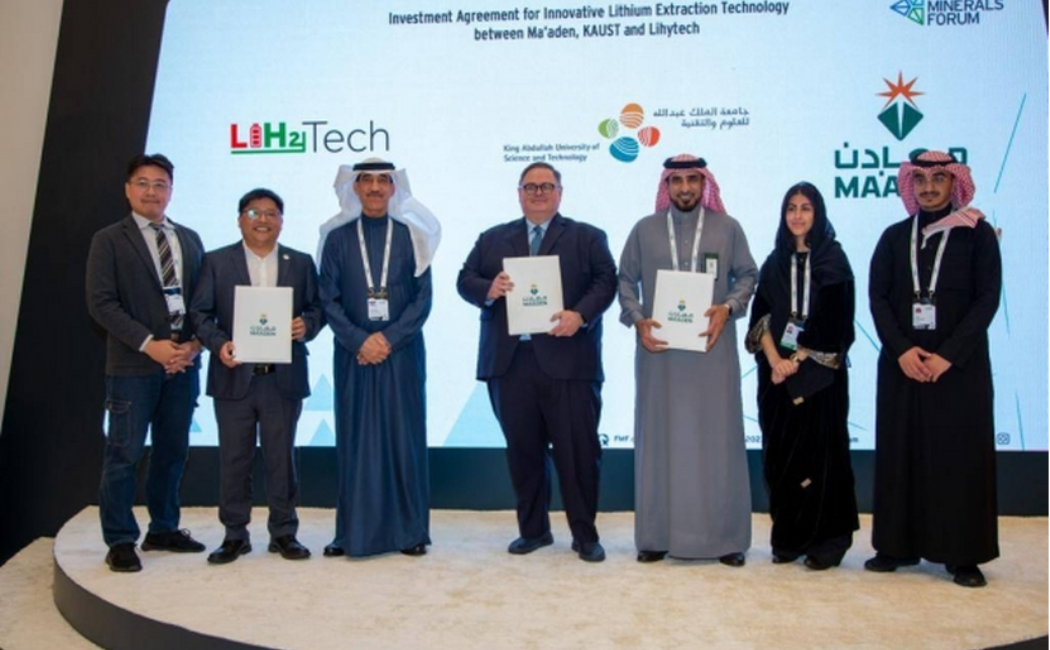
15 February, 2023
Saudi Arabian mining company Ma'aden, together with the King Abdullah University of Science and Technology (KAUST) Innovation Ventures Fund, are investing $6 million USD into Lithium Infinity (Lihytech). The KAUST startup's battery-grade lithium will be a key component in driving the Kingdom of Saudi Arabia's commitment to developing the entire value chain of electric vehicles (EVs).
Lihytech has patented a membrane-based lithium extraction technology developed by Professor Zhiping Lai at KAUST. The innovative technology can extract alkali metals from seawater, brine, red mud, and more. Based on KAUST research, the startup was funded through the KAUST Near Term Grand Challenge, a research translation program, and the technology is being developed on the campus.
This investment will take the technology from lab to commercial pilot scale. Ma'aden is leading the acquisition with $4 million and KAUST Innovation Ventures is investing $2 million. The University's venture capital arm, KAUST Innovation Ventures, supports deep-tech startups that look to offer solutions to pressing scientific and technological challenges, such as lithium extraction. Lihytech will use the infusion of capital to build a pilot facility at KAUST to extract lithium from the Red Sea and other in-Kingdom resources.
"This technology has the potential to be a game-changer," said Kevin Cullen, vice president of KAUST Innovation. "Professor Zhiping and his team have found a way to make lithium extraction both technically and economically feasible. We are very pleased that Ma'aden will join KAUST Innovation Ventures to move this technology forward and bring it to market."
Lithium is often called the new "white gold" because its batteries power EVs, smartphones, personal electronic devices, and more. However, lithium demand is outstripping supply. Accelerated adoption of EVs is spurring demand for ever more lithium. It is estimated that Tesla, alone, will deplete the world's lithium reserve in less than 30 years. Additionally, conventional lithium extraction is energy-intensive, complex, and lengthy, which results in heavy pollution.